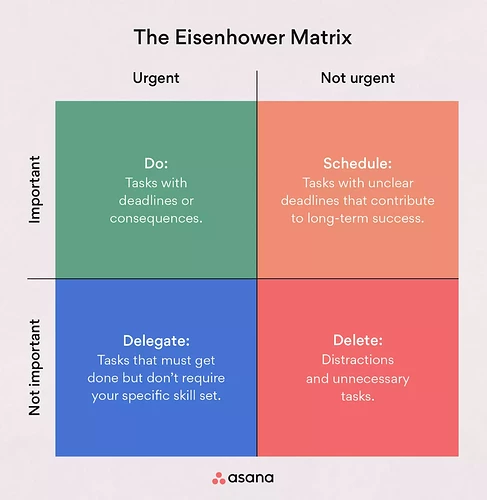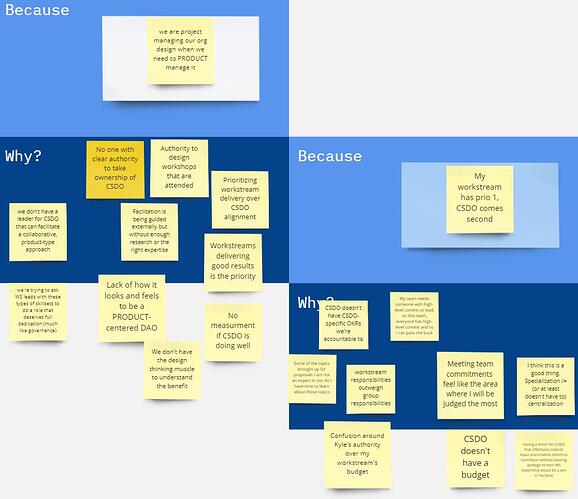We’ve come through a period of course correction as a DAO, and have seen a few major decisions recently taken: GPC is splitting into Passport and Allo Protocol. And FDD and DAOOps will dissolve, and S17 will be their final seasons.
While difficult, I see this as overall very positive. We’re re-orienting the DAO around the products. Plans are already in place to move our support, fraud, and data analysis functions into the product teams. And as Kyle wrote up recently, all of this allows us to center our work around our most important things.
These recent changes require additional work to be done to ensure operational continuity. Still, I’m confident that we have the right structures to enable us to continue to operate and evolve the DAO.
Tension: where are we still likely to see work that falls through the cracks?
I think we have two areas of coordination that remain unaddressed in our DAO.
-
We are missing bottom-up ideation and participation. Outside of joining a workstream, there aren’t low-barrier onramps where our community can step in and contribute to shaping gitcoin. We have a tremendous opportunity with @ceresstation 's recent proposal to use the Grant Stack to invite our community to participate in a regular cadence of Gitcoin building Gitcoin rounds. These rounds can enable much of the work with no home in the current or future workstreams. This would be a massive win in terms of shifting the budgeting work away from stewards, workstream leads, and the ‘insiders’ into a public space that leverages our core product to do what it does best: elicit the will of the community to fund initiatives in a concave space.
-
From the other direction, we are missing the ability to execute on some narrower strategic areas, evidenced in our inability to move forward with revenue modeling, GTC utility, and similar deeply consequential but non-workstream specific tasks. I think these issues suffer from what Divya and Safron call “Shared Stagnation: Sacrificing progress for participation” in their CIP Whitepaper. Gitcoin’s current issue is that even if we employed the best in class “sense and respond” governance techniques, we would have no individual who is accountable for getting this work done. As such, it languishes in any number of gov posts attempting to move this discussion forward. I believe we should reorient our approach and opt to have narrower accountability structures to solve this.
Proposal: address the work that we’ve been missing along two tracks:
-
A broad bottoms up effort to source and fund the jobs the community wants done, and to use our amazing collective intelligence superpower of quadratic funding to make that happen.
-
A narrow, top-down accountability setting that finds leaders in the DAO to take on specific mandate to deliver on key strategic issues (i.e. revenue modeling, and GTC utility).
For point 1, please do read Scott’s proposal here. I think this is nearly in the ‘safe enough to try’ territory.
For point 2, my assumption is that the individuals leading these efforts would be sourced from the DAO Core team. We would expect these folks to post regular progress reports in the forum, to solicit involvement from experts inside and outside of our DAO, and to run these topics to ground in the form of proposals that are ratified via Snapshot vote. We’ve had some precedent in the past for the top-down accountability with Kyle’s treasury diversification efforts. I’m of the opinion that the strategic work should follow a similar trajectory. Doing so would allow us to collectively remain focused on our most important things (Allo adoption and growth, and the Grant program), while still making progress on the topline strategic work that our existing team/responsibility structures have neglected. The shift here is one of process: are we ok to stop the leaderless, deliberative, and stagnant approach to these topics and move to assigning team members the mandate to lead the generation and ratification of these solutions?
To the group: Does this resonate? What are the risks and trade-offs that you see? What safeguards would you want in place to make this safe enough to try?

